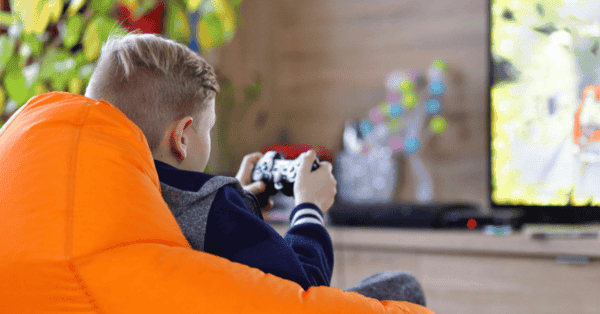Video games are usually thought of as something that’s exciting, entertaining or maybe a little silly. We see big brash adverts on bus stops, before films at the cinema and online. Many of these games are aimed at older players and focus on back-slapping exuberance or knife-edge competition.
However, like any media, there are many sides to video games. One of the aspects of games particularly useful at this time is one that many parents and carers may not be aware of: video games can offer spaces, narratives, tasks and characters that help children manage their emotions.
Video games and managing emotions
We are used to the benefits of escaping the chaotic world for an hour or two watching Netflix. We are familiar with how books transport us to other worlds. We know that reading poetry or gazing at paintings can be deeply calming. Many video games can do these things as well.
Whether it’s as simple as a child spending time building in Minecraft, flying through the beautiful landscape of Alto’s Adventure, gently trimming a plant in Prune or the complex web of social and interactive support playing Roblox games might offer, video games share more with these other forms of media that we might realise.
Parents and carers can support children in this, by asking them about what they are playing. Moving from playing a restrictive role to one that helps them understand the games they play can create really valuable conversations.
How to start conversations on gaming
Try asking your child, what they are working on in the game they are playing? Or how about getting them to tell you how they feel after playing their game for a while? Ask if there are achievements they are proud of? Enquire about which games help them feel in control of things. Maybe even see if there are games they would like to share or play with you?
Games available to manage wellbeing
As part of some work to support families at home during the isolation, I have put together a few lists of games that are particularly good at the emotional work:
As part of some work to support families at home during the isolation, I have put together a few lists of games that are particularly good at the emotional work:
Browsing these lists will uncover many games you might not have heard of. Here is further work you can do to help your child. Introduce a wider range of games where they can discover new benefits during this time, particularly if they are experience you can share together.





